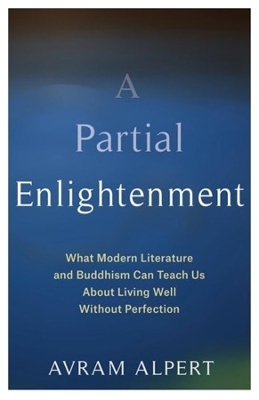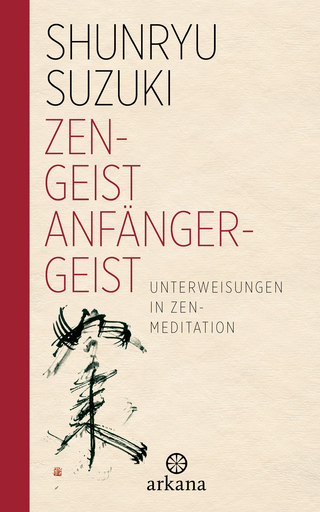
A Partial Enlightenment
What Modern Literature and Buddhism Can Teach Us About Living Well Without Perfection
Seiten
2021
Columbia University Press (Verlag)
978-0-231-20002-8 (ISBN)
Columbia University Press (Verlag)
978-0-231-20002-8 (ISBN)
- Lieferbar (Termin unbekannt)
- Versandkostenfrei innerhalb Deutschlands
- Auch auf Rechnung
- Verfügbarkeit in der Filiale vor Ort prüfen
- Artikel merken
In many ways, Buddhism has become the global religion of the modern world. For its contemporary followers, the ideal of enlightenment promises inner peace and worldly harmony. And whereas other philosophies feel abstract and disembodied, Buddhism offers meditation as a means to realize this ideal. If we could all be as enlightened as Buddhists, some imagine, we could live in a much better world. For some time now, however, this beatific image of Buddhism has been under attack. Scholars and practitioners have criticized it as a Western fantasy that has nothing to do with the actual experiences of Buddhists.
Avram Alpert combines personal experience and readings of modern novels to offer another way to understand modern Buddhism. He argues that it represents a rich resource not for attaining perfection but rather for finding meaning and purpose in a chaotic world. Finding unexpected affinities across world literature—Rudyard Kipling in colonial India, Yukio Mishima in postwar Japan, Bessie Head escaping apartheid South Africa—as well as in his own experiences living with Tibetan exiles, Alpert shows how these stories illuminate a world in which suffering is inevitable and total enlightenment is impossible. Yet they also give us access to partial enlightenments: powerful insights that become available when we come to terms with imperfection and stop looking for wholeness. A Partial Enlightenment reveals the moments of personal and social transformation that the inventions of modern Buddhism help make possible.
Avram Alpert combines personal experience and readings of modern novels to offer another way to understand modern Buddhism. He argues that it represents a rich resource not for attaining perfection but rather for finding meaning and purpose in a chaotic world. Finding unexpected affinities across world literature—Rudyard Kipling in colonial India, Yukio Mishima in postwar Japan, Bessie Head escaping apartheid South Africa—as well as in his own experiences living with Tibetan exiles, Alpert shows how these stories illuminate a world in which suffering is inevitable and total enlightenment is impossible. Yet they also give us access to partial enlightenments: powerful insights that become available when we come to terms with imperfection and stop looking for wholeness. A Partial Enlightenment reveals the moments of personal and social transformation that the inventions of modern Buddhism help make possible.
Avram Alpert teaches writing at Princeton University. He is the author of Global Origins of the Modern Self, from Montaigne to Suzuki (2019). He is also coeditor of Shifter magazine and has written cultural criticism for outlets including the New York Times, the Washington Post, the Brooklyn Rail, and Truthout.
Acknowledgments
Introduction
1. Enlightenment
2. Reincarnation
3. Liberation
4. Authenticity
Coda
Notes
Bibliography
Index
| Erscheinungsdatum | 13.05.2021 |
|---|---|
| Verlagsort | New York |
| Sprache | englisch |
| Maße | 140 x 216 mm |
| Themenwelt | Geisteswissenschaften ► Religion / Theologie ► Buddhismus |
| ISBN-10 | 0-231-20002-1 / 0231200021 |
| ISBN-13 | 978-0-231-20002-8 / 9780231200028 |
| Zustand | Neuware |
| Haben Sie eine Frage zum Produkt? |
Mehr entdecken
aus dem Bereich
aus dem Bereich
Philosophische Betrachtungen
Buch | Softcover (2024)
Aufbau TB (Verlag)
12,00 €
Unterweisungen in Zen-Meditation
Buch | Hardcover (2024)
Arkana (Verlag)
20,00 €


